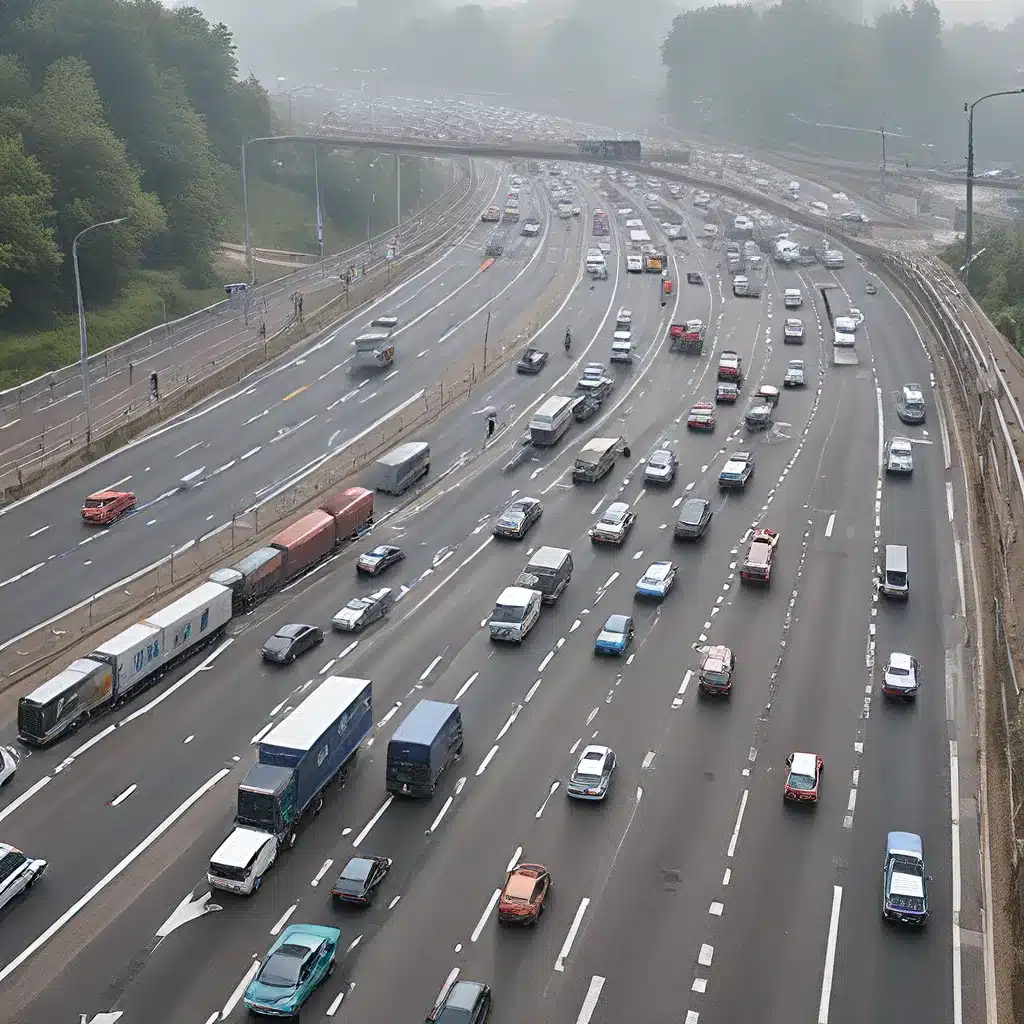
The global transportation sector is a major contributor to greenhouse gas emissions, accounting for nearly a quarter of total emissions worldwide. As the world grapples with the pressing issue of climate change, the decarbonization of transportation has emerged as a critical priority. I’ll explore the policy challenges and opportunities in this crucial endeavor, drawing insights from industry experts and the latest research.
Limitations of Biofuels
One common solution often touted for decarbonizing transportation is the use of biofuels. While biofuels are often described as “sustainable aviation fuels,” the reality is more complex. According to a report from the Clean Air Task Force, large-scale biofuel production can actually drive up demand for commodity crops, leading farmers to convert natural land into farmland. This process can result in the transfer of soil and plant carbon into the atmosphere, potentially negating the climate benefits of biofuels.
Moreover, even if biofuels were climate-beneficial, the report suggests that the world’s entire biofuel production would still not be enough to meet the projected global energy demand for aviation alone, let alone the broader transportation sector. Clearly, we need to look beyond biofuels to achieve meaningful decarbonization in transportation.
The Need for a Comprehensive Policy Approach
To effectively decarbonize the transportation sector, governments will need to develop a coherent policy response that goes beyond just biofuels. The Clean Air Task Force report suggests that this response should include investments and policy support for an expanded suite of clean energy solutions, such as low-emissions hydrogen, synthetic fuels, electricity, and direct air capture.
This aligns with the findings of a report by the InterAcademy Partnership (IAP), which highlights the need for a multifaceted approach to decarbonizing transportation in Africa, including policy, institutional and technical capacity, strategies, technologies, financing, and social considerations.
Overcoming Policy Challenges
Implementing effective policies to decarbonize transportation is no easy task. There are several key challenges that policymakers must navigate:
-
Technological Limitations: Many of the clean energy solutions required for transportation decarbonization, such as hydrogen and synthetic fuels, are still in the early stages of development and may not yet be cost-competitive or scalable enough to meet the sector’s energy demands.
-
Infrastructure Gaps: Transitioning to new transportation technologies, like electric vehicles (EVs) or hydrogen-powered vehicles, requires significant investment in charging/fueling infrastructure, which can be a major barrier, especially in developing regions.
-
Financing Challenges: Mobilizing the necessary financial resources to support the research, development, and deployment of clean transportation solutions can be a daunting task, particularly in the face of competing priorities and limited budgets.
-
Stakeholder Coordination: Effective decarbonization efforts require the alignment and coordination of a diverse set of stakeholders, including policymakers, industry leaders, researchers, and community groups, which can be challenging to achieve.
Seizing the Opportunities
Despite these challenges, there are numerous opportunities for policymakers to drive the decarbonization of transportation:
-
Incentives and Regulations: Governments can implement a range of incentives and regulations, such as carbon pricing, vehicle emission standards, and purchase subsidies, to encourage the adoption of clean transportation technologies and fuels.
-
Public-Private Partnerships: Collaborative efforts between the public and private sectors can help to pool resources, expertise, and risk in the development and deployment of innovative decarbonization solutions.
-
Technological Advancements: Ongoing research and development in areas like battery technology, hydrogen production, and carbon capture hold the promise of more affordable and scalable clean transportation options in the years to come.
-
International Cooperation: Coordinated action at the global level, such as through international agreements and knowledge-sharing, can help to accelerate the deployment of best practices and drive down the costs of clean transportation solutions.
The Path Forward
As I’ve outlined, the task of decarbonizing the transportation sector is complex and multi-faceted. It will require a strategic, collaborative, and adaptable approach that draws upon the latest research, innovative technologies, and effective policies.
While the challenges are daunting, I’m optimistic that with the right mix of political will, private-sector investment, and public engagement, we can make significant strides in reducing the transportation sector’s carbon footprint and contribute to a more sustainable future. After all, the stakes are too high for us to do anything less.
I encourage you to explore the renewable energy solutions offered by our website, as they may hold the key to unlocking the transportation sector’s decarbonization potential. Together, we can work towards a cleaner, greener, and more resilient transportation system that benefits us all.

